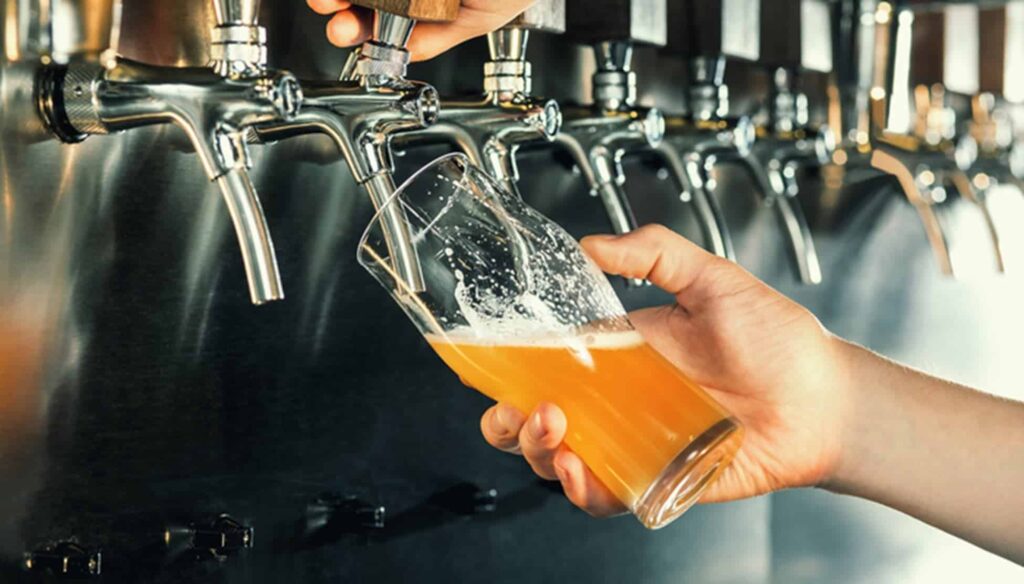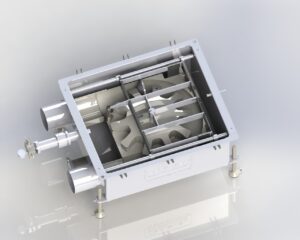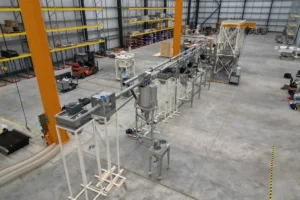Beer brewing is an interesting yet complex process that requires a lot of dedication and quality equipment. In today’s industry, producers are constantly wondering how to improve the beer brewing process. There are many ways to do that, so stick around for some useful tips.
What’s the Beer Industry Like Today?
The beer industry has long been dominated by big players. For decades, commercialized beer was the norm, and there was little innovation in terms of the brewing process and the taste of beer. Small craft breweries had yet to find their footing in a world crowded by industrial corporations and their larger-than-life brewing systems.
Thankfully, the beer brewing industry landscape doesn’t look like that today. Craft breweries are springing from the ground on every corner. Business partners, families, and regular people can now open a microbrewery of their own and start producing a signature beer that will wow their local community (and perhaps even a wider audience). There is so much beer to try and so little time!
Developments in the Beer Brewing Industry – How to Keep Up With the Changes?
On one hand, this staggering development of craft beers is remarkable for both consumers and aspiring brewers. On the other hand, for the brewers, it can also pose a challenge. If they’re not efficient enough in their brewing process or their recipe is not appealing to the public, they may not be able to break through the craft beer clutter.
The name of the game in beer brewing is efficiency and originality. Streamline your process, follow the latest equipment innovations and recipe trends, and put your own spin on it. Here are some general guidelines on how to improve your beer brewing process.
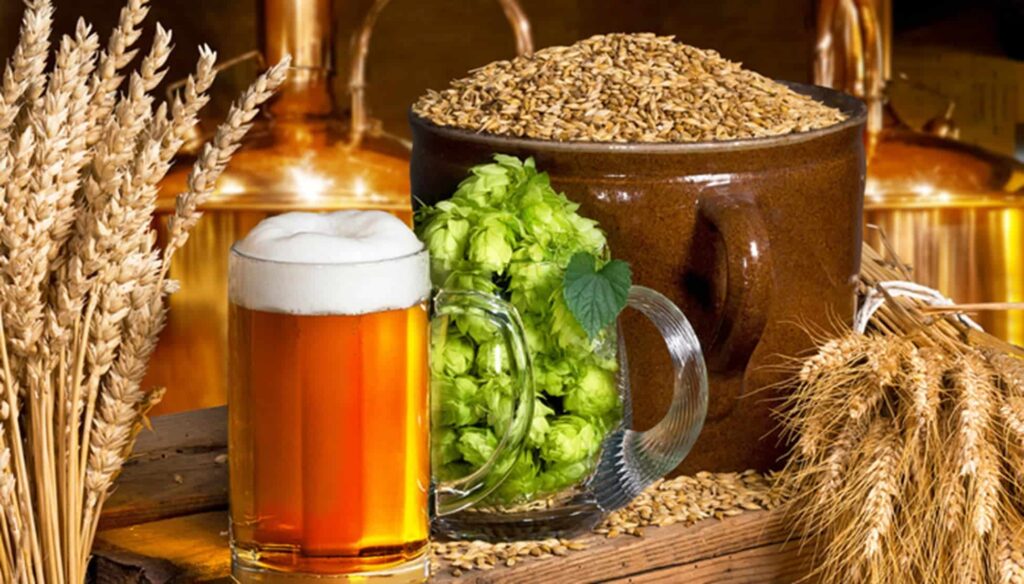
Eliminating the Human Factor – Reduce Manual Labor
If your brewery isn’t fully automated yet, you should look into ways to make it so. Automation is the key to a (relatively) fast, reliable process that produces consistent brew. It eliminates the human factor from the equation, allowing fewer errors in the brewing process and fewer workplace injuries.
Automation Conveyor Systems Will Make Production More Efficient
Repetitive physical strain leads to the deterioration of your workers’ health, and operating heavy machinery is an accident waiting to happen. Reduce these risks by introducing automated brewing equipment, such as grain transportation via a belt conveyor system.
Industrial conveyor belt systems move specialty grain from the grinder to the mash and the rest of the process without human interference. Cablevey Conveyors has systems that do this in a gentle, slow manner that prevents the breakage of grain – all you get is good malt that you can use for making good pale ale and other types of beer.
Automated Systems Guarantee a Smooth Flow of Grain
Automated systems are a lifesaver in a process as complex as brewing beer. Aside from protecting your workers’ health and reducing manual labor, conveyors ensure the smooth flow of the grain. Breweries of any size use conveyor systems in practically all steps of the beer production process, often for 24 hours a day. This kind of flow increases production and efficiency, consequently increasing profitability as well.
Choosing a Conveying System That Fits Your Facility Perfectly
You may worry that your brewery doesn’t have enough space for a conveyor system – while that may be the case with a classic conveyor belt for a warehouse, it is not a problem for Cablevey Conveyors. Our engineering department specializes in designing custom conveyor belt solutions for large and small spaces, depending on the customer’s needs.
A large library of system parts in all sorts of sizes, diameters, and materials ensures that any type of brewery can get its own reliable Cablevey conveyor transport optimized to meet its brewing needs.

Introduce Brewing Analytics Into the Process
One of the major problems the craft brewing industry faces today is not knowing exactly what is going on in each step of the brewing process. With most brewing equipment primarily made of stainless steel, the visual factor is eliminated – you need to rely on readings and gauges to tell you what is happening with the current batch of beer. However, you will come across situations where you don’t even have any readings to check.
When it comes to the carbonation levels of your tanks, for example – how can you know exactly how much CO2 is left in the tank before you have to switch it out for a new one? Do you know how many ingredients you lose on a daily basis? Do you know which processes are taking too long and could be improved? Brewing analytics – or, more specifically, brewing software – can help you answer all of these questions.
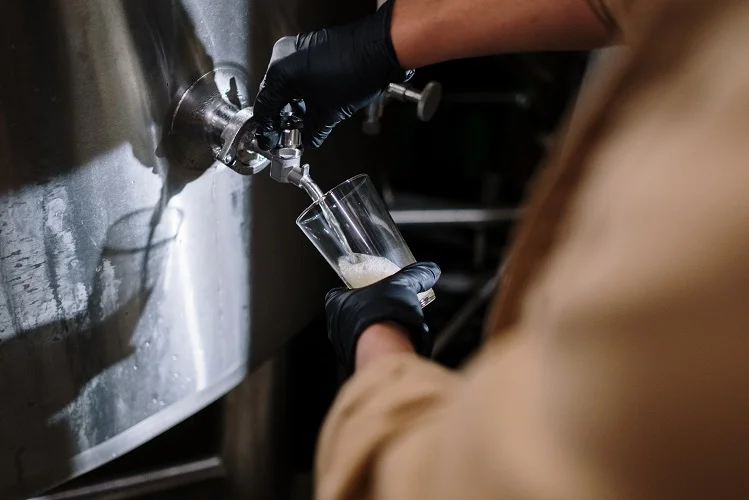
The Advantages of Using Software to Keep Track of Your Brewing
Updating your brewing process with modern software has countless benefits and will ensure that your new batches are better than ever. So, what exactly can analytics do for you? Here are the main benefits of using brewing software:
Data Validation in Real-Time
When you look at data after a brewing step is complete, it is too late to do anything about it. You have to wait for the next batch until you can refine your brewing techniques. However, the software allows you to validate the information in real-time, giving you the chance to react more quickly and potentially come up with a solution on the spot, saving you time, money, and a headache later.
Better Consistency of Flavors
Perhaps you noticed that your beer styles have inconsistent flavors between different batches, and you’re not sure what’s causing this. Through visual data representation over a longer period of time, you will easily track changes in factors like pH levels, gravities, alcohol levels, temperature levels, and fermentation process metrics between batches. This allows you to have a consistent brew in the future.
Efficiency Analysis of the Brewing Process
To track how efficient you are with your brewing, you need to assess things like profit per unit, batch costs, amount of wasted product or ingredients, and more. Doing this by hand is difficult, but the software will help you gather all the relevant information in one place. You won’t have to use average numbers but actual values, making the calculations more precise and allowing you to maintain costs, price new products, and even compare against other brands.
Keeping Track of Key Performance Indicators
If you wish to see whether the changes you make have any effect, you should keep an eye on key performance indicators that accurately reflect these changes. Brewing software will do that for you, making sure that your workers meet the beer production goals, don’t run out of fresh ingredients or waste too much time on packaging, and so much more.
Turn to Food Science for Better Results
The idea of brewing beer in a lab may be off-putting to some. After all, beer is meant to be a welcoming, refreshing experience, not a clinical one. But the truth is, while beer is a social drink more than anything else, beer brewing is a type of food science. You are essentially making alcohol out of carbohydrates through a series of complex processes. These processes occur in nature, but they are irrevocably linked with science.
You’re not playing around with home brewing. You are serious about your business, and you are always striving to brew better beer. Taking a sneak peek at what food scientists are doing and the new chemical innovations in beer brewing will allow you to perfect your beer recipes, no matter what beer styles you’re producing.
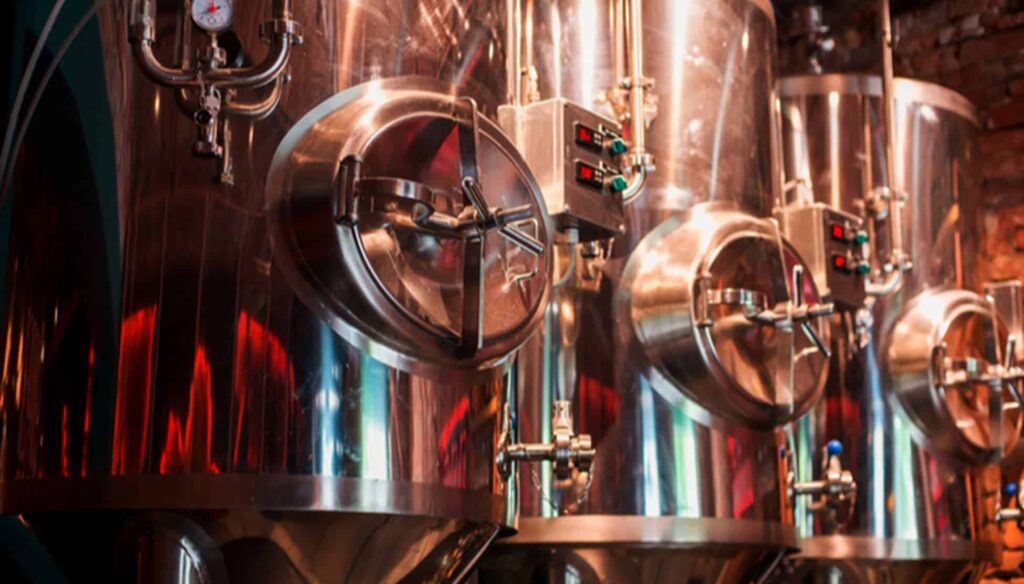
Pay Attention to Hop Content
A common belief is that the more hop you add to your brew, the stronger the hoppy aroma and flavor will be. However, recent discoveries are telling us that is not the case. Different hop plants produce different types of hop oil that can greatly vary in their potency.
You can add the same amount of hop oil from two different plant strains and achieve completely different tastes. With further research on this, beer brewers should ultimately be able to choose the exact variety of hops and add just the right amount of it to always achieve the precise flavor profile they are aiming for.
Use the Right Yeast Starters and Strains
Almost every microbrewery has its yeast strain or yeast starters for its signature brews. An average brewer can’t determine where a yeast strain came from or what its genetics and physiology are like. It may work for their particular purpose, but it might not be the best yeast culture to use overall.
Scientists have started cataloging yeast strains that are used in baking and brewing. They’re analyzing around 157 strains of yeast, Saccharomyces cerevisiae, in the hopes of determining the exact potential each strain has in food making. In 2016, Cell published what looks like a guidebook for brewers, where you may find better yeast than what you’re currently using to improve your process.
Reach Out to Cablevey Conveyors for Quality Beer Brewing Equipment That Will Improve Your Product
In the world of beer brewing, the quality and efficiency of your equipment, such as a conveyor belt system, can significantly influence the final product. This is where Cablevey Conveyors comes to the scene. We have a stellar reputation, and our conveyor systems are among the best in the business. From a standard conveyor belt for food to sophisticated tubular conveyors, we have it all.
Our commitment to excellence means that we’re continually refining and evolving our offer, keeping pace with the latest brewing trends and technological advancements. Cablevey Conveyors promises equipment that will elevate your brewing process. Contact us and discover how investing in top-quality equipment can drastically change your production process. We’re looking forward to helping you make excellent beer!
FAQ
What Are the Current Trends in the Beer Brewing Industry?
Craft breweries are gaining prominence, overshadowing traditional beer giants. With a shifting focus from commercialized beer, today’s market sees an explosion of unique flavors and brewing techniques, enabling diverse choices for beer enthusiasts.
How Can Breweries Improve Their Brewing Process?
To excel, breweries should marry originality with efficiency. Keeping abreast of the latest equipment and recipe trends while adding a unique touch is paramount. Continuous adaptation and innovation will set them apart in a saturated market.
What Are the Benefits of Automating the Beer Brewing Process?
Automation brings precision, consistency, and safety. Removing human variables ensures uniformity in batches. Additionally, it minimizes potential workplace hazards, ensuring a safer environment. With automation, breweries can achieve a reliable, consistent, and efficient brewing process, which is crucial for quality assurance.
How Do Conveyor Systems Improve the Brewing Process?
Conveyor systems, especially from Cablevey Conveyors, optimize grain transportation. They ensure grains are moved gently, minimizing breakage. This consistent, smooth transport enhances the efficiency and profitability of breweries, ensuring top-quality production from start to finish.
What Challenges Does the Proliferation of Craft Beers Pose to Brewers?
The craft beer boom signifies more competition. New breweries must have an edge – either through a unique brew or efficient processes – to stand out. Without a distinctive offering or efficient production, penetrating the thriving market becomes increasingly challenging.
How Can Brewing Analytics Benefit the Brewing Process?
Brewing analytics provide invaluable insights. With real-time data, brewers can address issues immediately. The software offers visual representations of crucial metrics, such as pH and alcohol levels, ensuring consistency. Furthermore, understanding performance indicators helps streamline operations, enhancing overall quality and efficiency.
How Does Food Science Apply to Beer Brewing?
Beer brewing intertwines with food science. While beer remains a beloved social drink, its creation involves scientific processes. By embracing food science principles, brewers can refine their recipes, ensuring consistent quality and taste across batches, ultimately satisfying discerning beer aficionados.
Why Is the Hop Content Crucial in Beer Brewing?
Hops dictate a beer’s aroma and flavor. Different hop plants produce varied oils, impacting the beer’s profile. An understanding of this variability allows brewers to consistently achieve desired flavors, ensuring every batch meets their specific taste benchmarks.
How Are Yeast Starters and Strains Vital in Brewing?
Unique yeast strains influence a beer’s character. Selecting the right strain ensures a distinctive, consistent flavor. With ongoing yeast research, brewers can access a broader range, fine-tuning their brews to create stand-out beers that resonate with consumers.
Why Choose Cablevey Conveyors for Brewing Equipment?
Cablevey Conveyors specializes in top-tier, gentle conveyor systems, ensuring quality in beer brewing. Designed for optimal ingredient handling, the company’s systems are adaptable, fitting various spaces. Cablevey’s commitment to innovation and quality guarantees an enhanced brewing process, making it an industry go-to.

